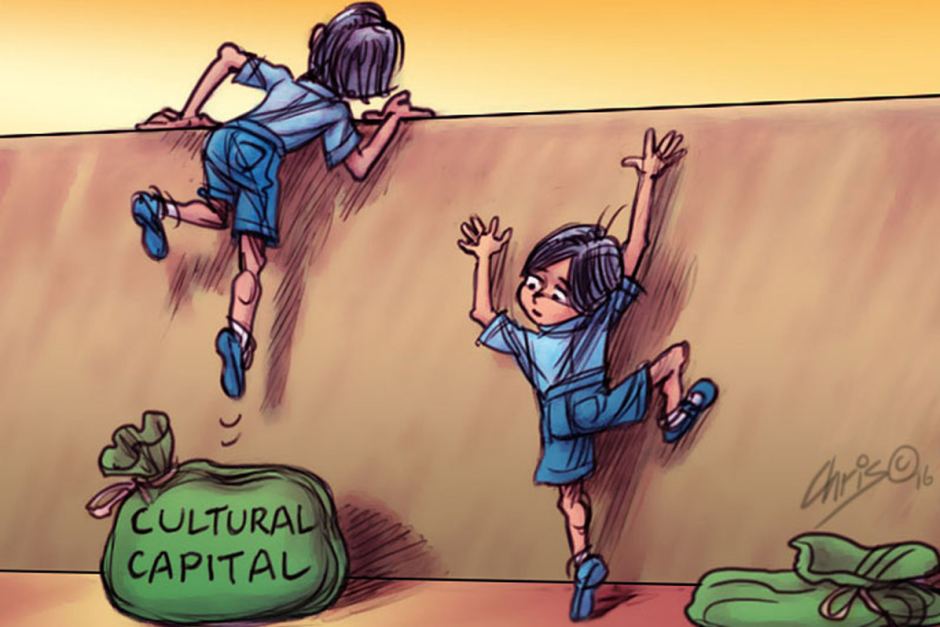
What is Cultural Capital?
To be honest, cultural capital is not the usual conversation piece. But it is both a conscious and unconscious part of our everyday lives. Now that Ofsted has introduced the…
October 4th 2021
In 2013, I wrote a blog to raise the alarm on an ill-considered plan to reduce staff to child ratios and reduce the cost of childcare. I was not alone in my concern and the sector pulled together to scupper a plan which was based on a very flawed report which was roundly rejected by the sector. I was outraged that a politician could decide to change the ratios without any consideration or debate.
Is this about to happen again? Our new Minister, Will Quince hasn’t even got his feet under the table yet, so we don’t know what his thoughts are – nor are they referenced in the article on the front page of The Telegraph this morning with the headline:
However, the challenge to cut childcare costs by increasing the number of children to staff is back. Let me quote you some of the language in the article, the red bits are the words that really made my blood boil.
Childcare costs will be driven down under government plans to increase the number of toddlers a staff member can look after
Education sources agreed that allowing childcare workers to watch larger groups would force down the amount parents have to pay.
A Treasury source argued that increasing adult to child ratio in nurseries would in normal economics reduce the cost of childcare.
The levels in England are set markedly lower in England in some age groups, a carer can look after only a maximum of four children compared with four in Scotland, eight in France or 20 in Spain.
An education source said that if you get a slightly higher qualification you are able to take more children.
Professor Len Shackleton of Buckingham University and editorial and research fellow with the institute of Economic Affairs Think Tank who looked into childcare costs was supportive “We’ve got the most expensive childcare in Europe. We need some fundamental rethinking. And yes, part of this is to cut down on these types of rules”
In essence, the Government wants to “level up” by cutting Government spend and find ways of reducing costs to voters. To reduce childcare costs, they don’t want to increase the funding subsidy but cram more children into nursery settings and let them solve the problem.
So, to anonymous education sources and Professor Shackleton and his team, check out the facts and research already available and read why thoughtful ratios are important for the wellbeing of children and the ability of staff to really support their learning and development. We do not, as the article states, “watch” children.
Good quality nurseries and Early Years settings support and develop children’s learning through the art, craft and science of Early Years teaching. It is not just putting children in one space and “watching” them.
We have some of the best childcare in the world despite the fact that our government gives less than half the support that other leading childcare countries do. Increasing ratios will significantly reduce the time available for staff to spend with each child. This is particularly important for the youngest children, our little babies and two year olds whose welfare and development are closely linked to social interaction and forming secure attachment relationships with adults.
* Why would we think it’s ok to put our children into crowded nurseries? How is that good for their wellbeing?
* In the UK, many children are full-time in nurseries which could be 50 hours a week. In Europe, children don’t attend anything as long.
* Good ratios are key to systemic quality for children.
* European childcare is much more government subsidised which is why parents pay less.
* The ratios in France don’t include all the ancillary support workers involved in the service delivery.
* Children need highly qualified staff to deliver the best education and care but if they have too many children no one can deliver quality no matter what the qualification.
* The reduced staff costs will be increased by agency staff as the permanent staff become absent from stress and exhaustion. This is already a problem.
* How does increasing the number of children to a staff member address the increased cognitive, communication and social needs of so many children since pandemic?
* The qualification of a staff member has no relevance when you are alone with six two-year olds. Qualified or not, little toddlers need hips and laps and lots of love and adult attention.
* Parents will not be happy to find that they have to sign up to higher ratios with more risk to their children for a chance of a very limited fee reduction.
* Two tiers of provision may result where larger nursery chains with economies of scale may be able to keep ratios higher and poorer nurseries may have to reduce ratios and decrease the quality. This is particularly concerning as these are often the nurseries catering for our more disadvantaged children who will lose out even though they are the ones who can least afford this.
* Risk of accidents will increase. What will we do, ban all interesting creative activities and tie them into chairs?
* How will we change nappies and spend time on this intimate activity, talking to the child and having a little singing game when we are trying to keep our eyes in the back of our heads to make sure five other toddlers are safe?
* How will we balance the learning needs of all six toddlers and plan for each of them? We will have to operate a mass approach and fail children and parents.
* Have these people any idea just how many two-year olds coming through the Two-Year-Old Programme have language and behavioural issues and need additional care and attention?
* How will we spend any time at all with parents? How will we meet the EYFS requirements? Ofsted will see a decrease in standards.
* There is a raft of economic theories with the Heckman equation (the most well-known) which shows the long-term benefits of investing in Early Years and giving them the highest quality experience.
I could go on and on (luckily, I won’t!).
Parents need to understand the consequence of such changes. In 2013 when we campaigned on this, 84% of parents do not want childcare ratios to change and would rather pay more than see their child get less individual care and attention. Remember the Early Years Alliance (formerly Pre-school Learning Alliance) petition through www.rewindonratios.com
There is always one moment in childhood when the door opens and lets the future in. Let’s not close it by allowing this change to happen.

To be honest, cultural capital is not the usual conversation piece. But it is both a conscious and unconscious part of our everyday lives. Now that Ofsted has introduced the…

On the 7th April, we held the London OBC and here is a summary for those of you who could not attend. We are trying something new,…

Why the social enterprise model could be the solution to fixing England’s broken childcare system by expanding access to the communities that need it most. England is…